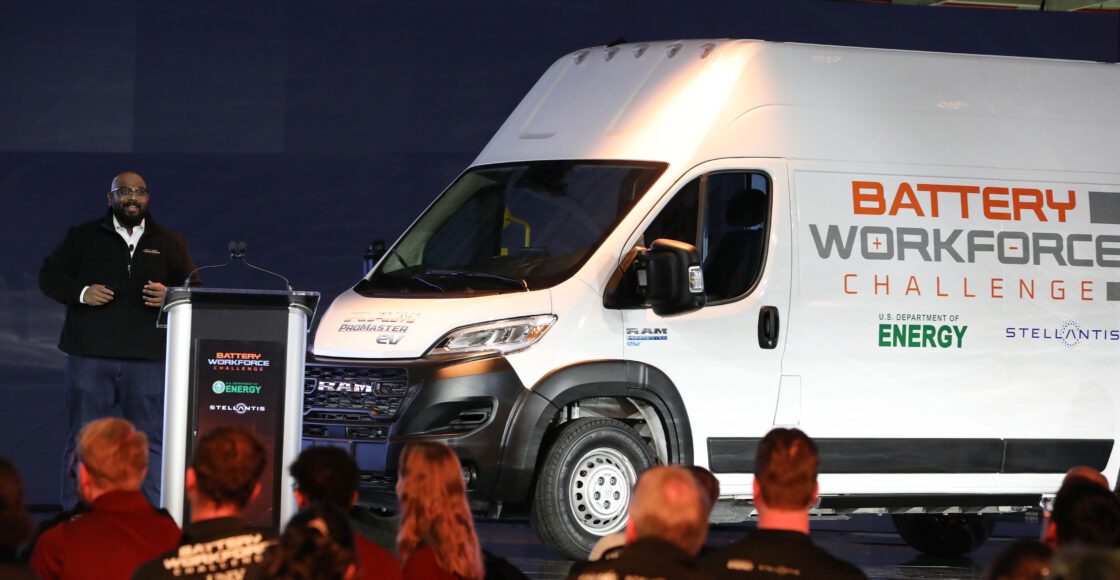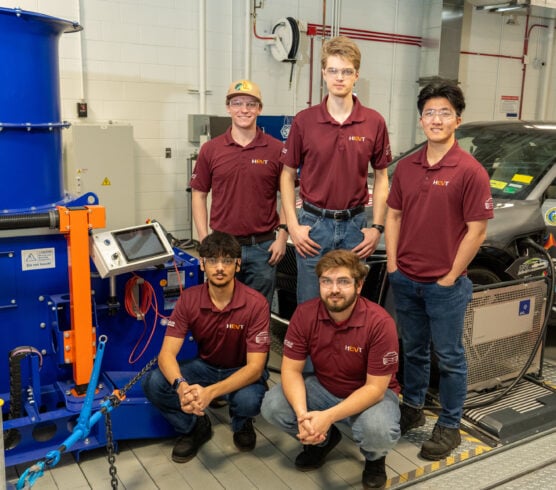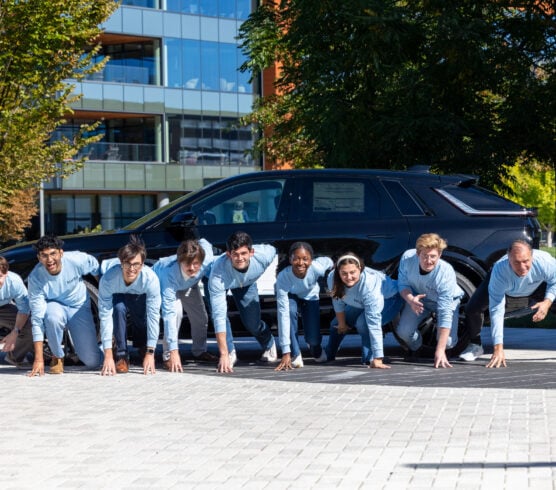DETROIT, Mich. – The Battery Workforce Challenge, a public-private partnership and North American collegiate engineering competition between the U.S. Department of Energy, Stellantis and Argonne National Laboratory, announced today that the recently introduced Ram ProMaster electric van is the vehicle that students will receive to design, build, test and integrate an advanced electric vehicle battery pack.
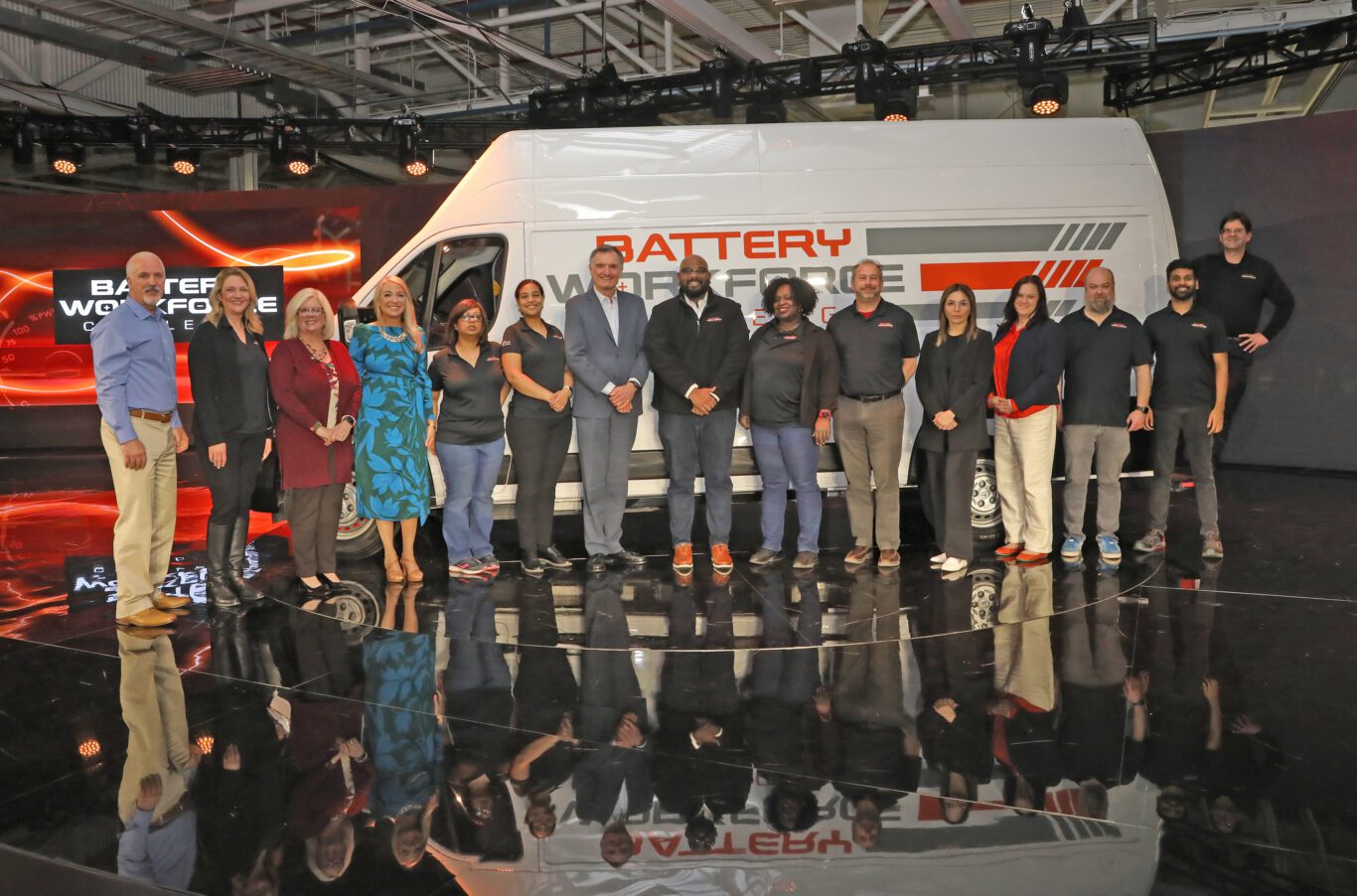
The 2024 Ram ProMaster EV was introduced earlier this year and is designed specifically for electrification, featuring a unibody design that efficiently incorporates the production battery pack. Perfect as a work van to perform commercial activities, this application serves as an exciting opportunity for students to design batteries for bigger vehicles.
The Battery Workforce Challenge began in 2023 and features 12 North American university teams, each partnering with a local community college. The teams were selected through a competitive process to secure a spot in the elite competition. Participating students will receive firsthand, experiential learning and will work in close partnership with industry experts to tackle one of the most relevant real-world engineering challenges facing the automotive industry today.
“Using this new Ram ProMaster EV during the competition is a critical way for the EV workforce of the future to further advance EV transportation technologies and it contributes to DOE’s efforts to improve the sustainable energy economy,” said Michael Berube, Deputy Assistant Secretary for Sustainable Transportation and Fuels in the Office of Energy Efficiency and Renewable Energy at DOE.
“The new Ram ProMaster EV is designed specifically for electrification and provides the students with a great proving ground to push the boundaries of technology,” said Micky Bly, Stellantis’ senior vice president and head of Global Propulsion Systems. “We look forward to seeing the students’ creative solutions for incorporating a Stellantis battery pack into the vehicle and how their work will help shape the future of mobility.”
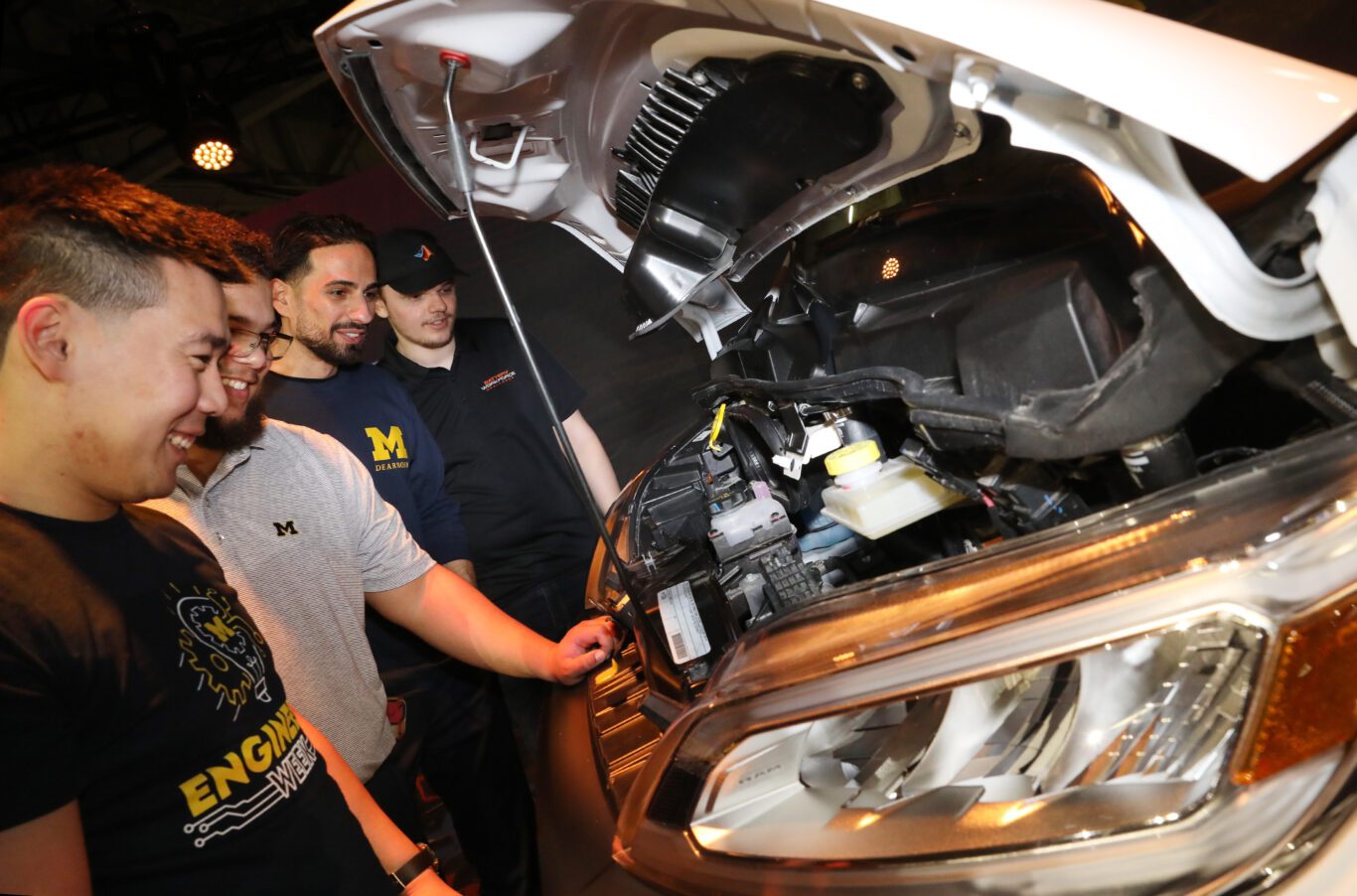
Claus Daniel, associate laboratory director for Advanced Energy Technologies at Argonne National Laboratory, said Argonne’s management of the Battery Workforce Challenge naturally extends the laboratory’s longstanding contributions to battery and transportation research and development.
“Sixty percent of EVs on the road today run at least in part on Argonne technology, and more than 30,000 students have experienced an unparalleled automotive engineering education thanks to our management of DOE Advanced Vehicle Technology Competitions. Accelerating science and developing the next-generation workforce help Argonne drive U.S. prosperity and security,” he said.
The competition culminates in 2026, with the winning teams receiving dozens of annual engineering and sponsor-related category awards; $100,000 in industry-provided prize money; and invaluable real-world experience working with industry leaders.
Additional organizations sponsoring the Battery Workforce Challenge include: AVL, Dana Corporation, MathWorks, Analog Devices, Inc., and Gamma Technologies.
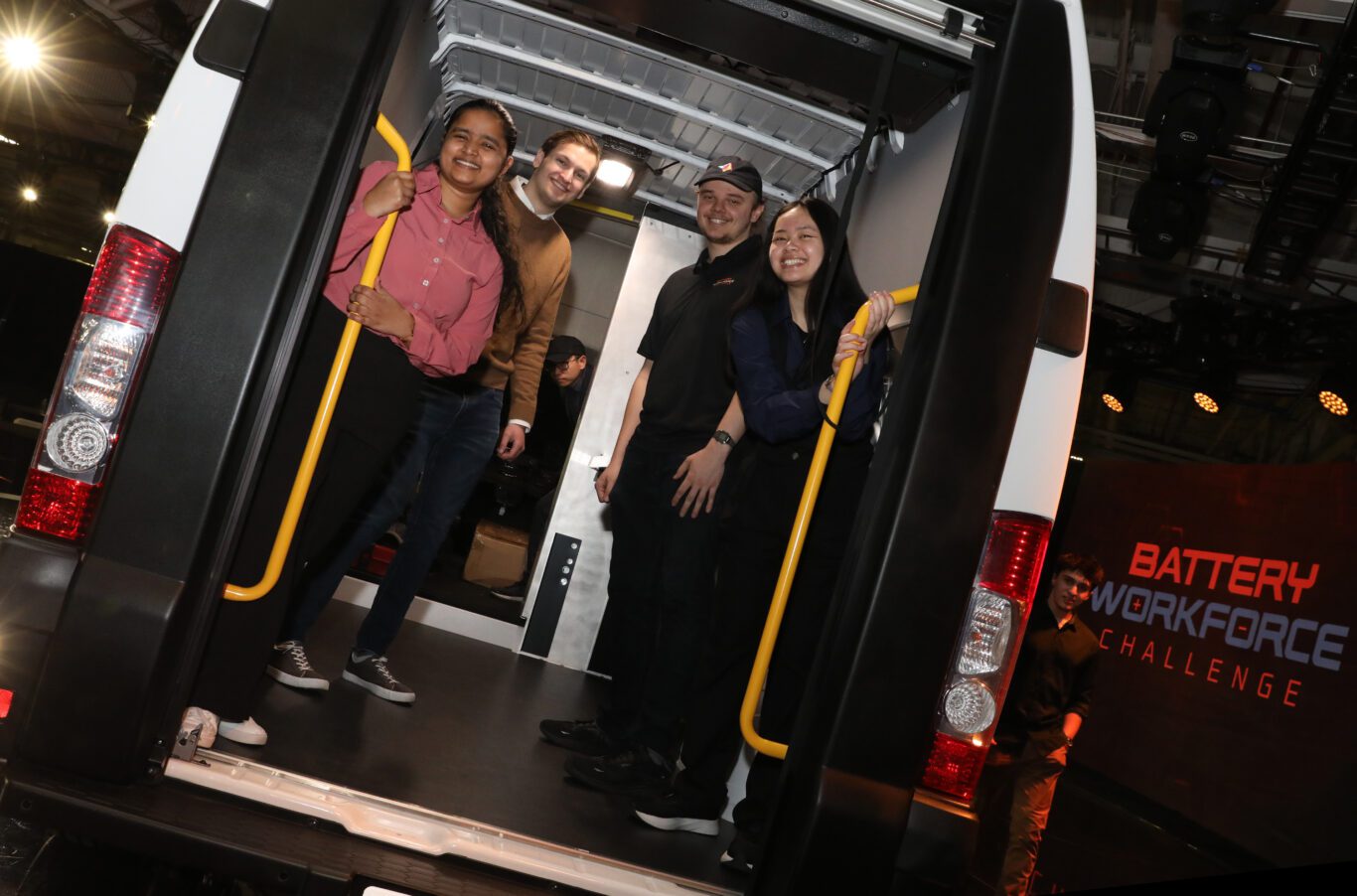
About the Ram ProMaster EV
With a targeted range of up to 162 miles in-city driving, the new Ram ProMaster EV is the brand’s first available fully electrified vehicle.
Two mission-specific configurations will be available, including the delivery model and two cargo models. The Ram ProMaster EV cargo model will be available in two configurations, including a 12-foot cargo length and an extended 13-foot cargo length (both with 159-inch wheelbases).
ProMaster EV’s battery is positioned under the floor in the center of the vehicle, which maintains a flat floor while cargo volume is unchanged from internal combustion engine vehicles.
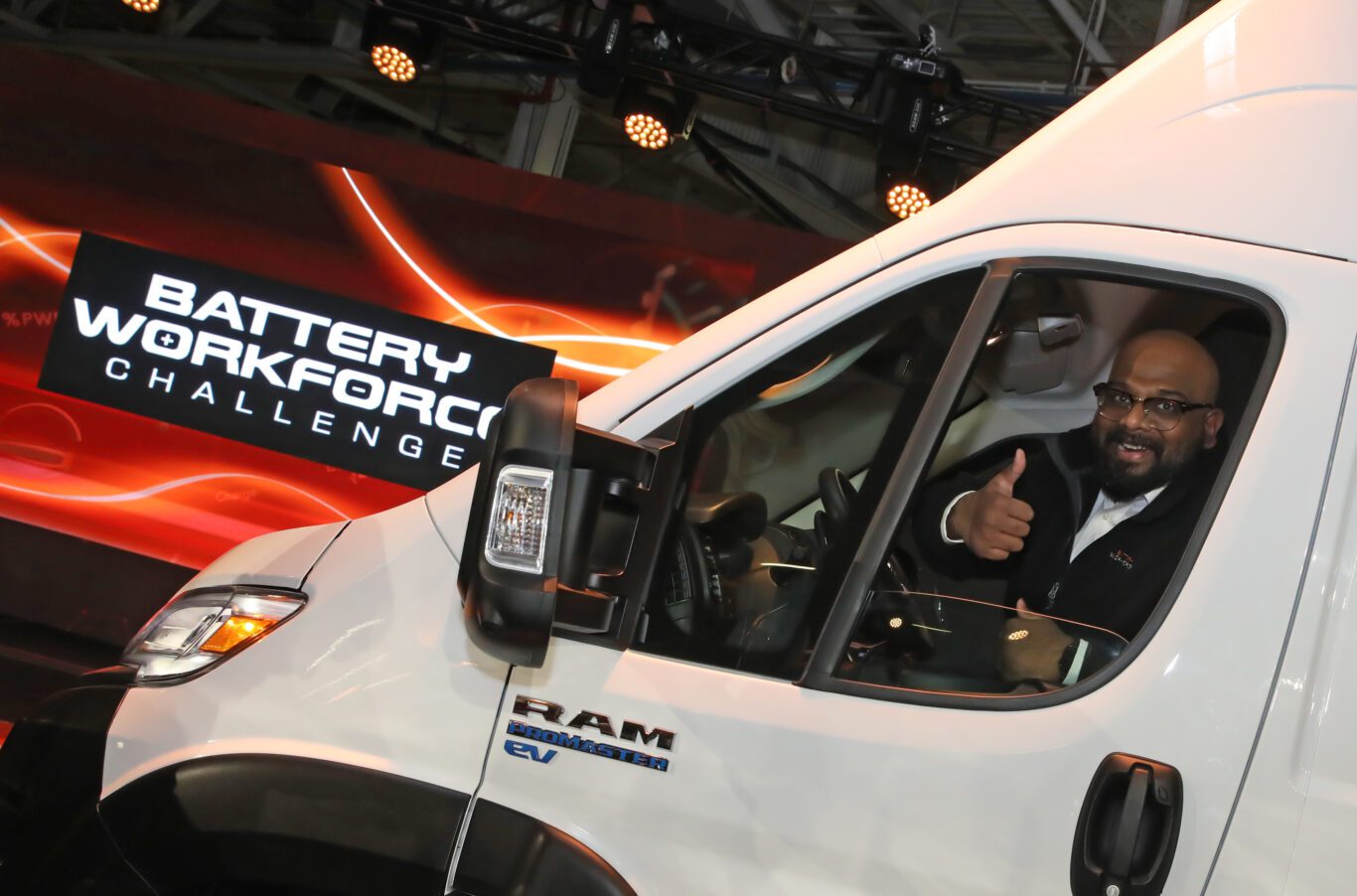
Stellantis North America
Stellantis is one of the world’s leading automakers and a mobility provider. In North America, it’s best known for producing and selling vehicles in a portfolio of iconic and award-winning brands such as Jeep®, Chrysler, Dodge, Ram, Alfa Romeo and Fiat.
Stellantis leads the way the region and the world move – aspiring to become the greatest sustainable mobility tech company, not the biggest, while creating added value for all stakeholders as well as the communities in which it operates.
Battery Workforce Challenge
The collegiate competition is part of DOE’s broader Battery Workforce Challenge Program, which also includes regional training with vocational and community colleges; STEM youth education; and an online tool for career and technical education. The program is dedicated to cultivating a skilled cohort of engineers, technicians and workers to propel domestic battery technology forward.
